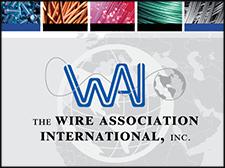THE INDUSTRIAL INTERNET CONSORTIUM PUBLISHES INDUSTRIAL NETWORKING ENABLING IIOT COMMUNICATION WHITE PAPER
The Industrial Internet Consortium® (IIC™), the world’s leading organization transforming business and society by accelerating the adoption of the Industrial Internet of Things (IIoT), today announced the IIC Industrial Networking Enabling IIoT Communication white paper. The paper serves as an introductory guide on industrial networking for IIoT system designers and network engineers, and offers practical solutions based on key usage scenarios.
“Industrial networking is the foundation of IIoT,” said David Zhe Lou, Chief Researcher, Huawei Technologies. “There are many choices of networking technologies depending on the application, the industrial network, deployment situation and conditions, but there is no universal or preferred industrial networking solution.”
Industrial networking infrastructure and technologies reside at the IP layer and below, and enable industrial assets, such as machines, sites and environments, to connect to the business professionals supporting applications across a wide range of industry sectors. Industrial networking technologies provide the foundation for applications that enable manufacturing productivity and profitability.
“IIoT applications have different needs depending on the industrial application and therefore demand robust, flexible and secure networks,” said Cliff Whitehead, Business Development Manager, Rockwell Automation. “This white paper will help IIoT system designers and network engineers understand the tradeoffs they can consider when designing an industrial network architecture that will be a strong foundation for current and future IIoT scenarios.”
Industrial networking is different from networking for the enterprise or networking for consumers. For example, IIoT system designers and network engineers need to make decisions about using wired or wireless communications. They have to figure out how to support mobility applications such as vehicles, equipment, robots and workers. They must also consider the lifecycle of deployments, physical conditions, such as those found in mining and agriculture, and technical requirements, which can vary from relaxed to highly demanding.
"Networking technologies range from industry-specific to universal, such as the emerging 5G, which meets diverse industrial needs,” continued Jan Höller, Research Fellow at Ericsson. “Industrial developers need guidance when devising solutions to select the right networking technologies, and this white paper is the first step to providing the missing methods and tools.”
The Industrial Networking Enabling IIoT Communication white paper sets the stage for the Industrial Internet Network Framework (IINF), which will complement the Industrial Internet Connectivity Framework (IICF) by detailing requirements and best available technologies for the lower three layers of the industrial internet communication stack.
The full IIC Industrial Networking Enabling IIoT Communication white paper and a list of IIC members who contributed can be found on the IIC website: https://www.iiconsortium.org/pdf/Industrial_Networking_Enabling_IIoT_Communication_2018_08_29.pdf
About Industrial Internet Consortium
The Industrial Internet Consortium is the world’s leading membership program transforming business and society by accelerating the Industrial Internet of Things (IIoT). The IIC delivers a trustworthy IIoT in which the world’s systems and devices are securely connected and controlled to deliver transformational outcomes. The Industrial Internet Consortium is a program of the Object Management Group (OMG). For more information, visit www.iiconsortium.org.
Comments (0)
This post does not have any comments. Be the first to leave a comment below.
Featured Product

